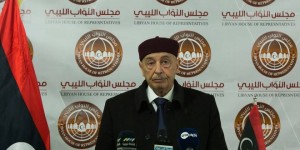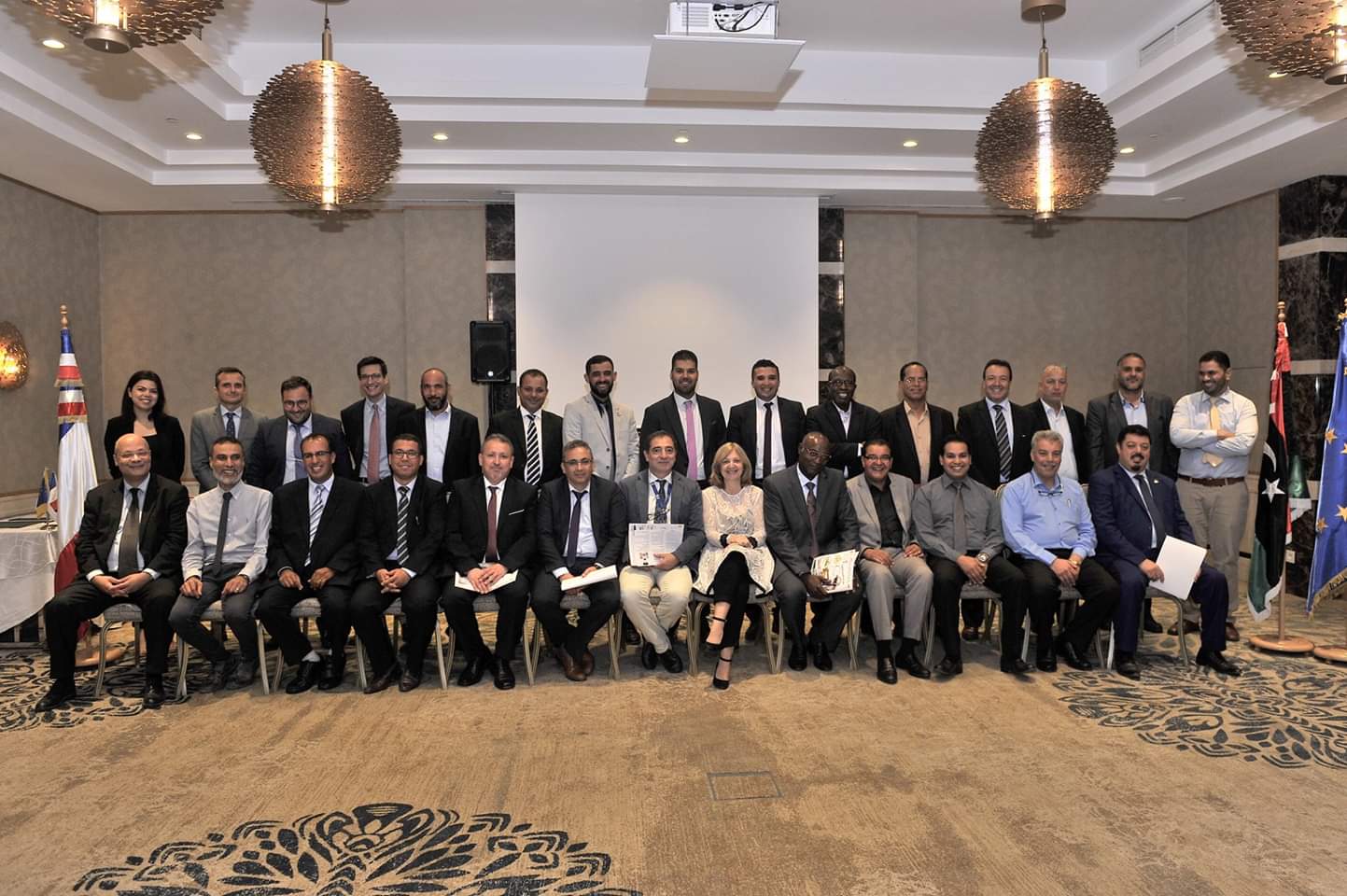By Sami Zaptia.

London, 10 July 2019:
Ageela Saleh, head of Libya’s internationally-recognized, parliament, the House of Representatives (HOR), said that Faiez Serraj, head of Libya’s internationally-recognized executive, the Presidency Council and Government of National Accord, has nothing to offer and that he is a hostage to Tripoli’s armed militias.
In a press release issued Monday, Saleh said that Serraj had nothing to offer in his so-called political peace initiative and that Serraj was in fact adding to the suffering of the Libyan people.
The significance of Saleh’s comments is that he has rarely directly addressed Serraj’s June initiative.
On Serraj’s 16 June initiative, Saleh said that “If Serraj could recognize the presence of terrorists and extremists in the ranks of (Western Libya’s) armed militias and stop the dominance of these armed militias of the (Tripoli) Central Bank of Libya and the (Tripoli-based) sovereign state institutions, then he could offer solutions to Libya and its people, who suffer daily from all these acts which brought us to where we are now (the fighting in Greater Tripoli).”
Saleh added that in Libya, there can be “no state as long as these militias exist”.
The creation or the existence of “the state and the armed militias are contradictions and the (Khalifa Hafter-led) Libyan National Army (LNA) is the protector of the constitution, law and the sovereignty of th Libyan State”, Saleh concluded.
It will be recalled that Faiez Serraj had launched a seven point political initiative on 16 June aimed at ending the fighting between the two main Libyan Political and military blocks.
Khalifa Hafter and his mainly eastern-based LNA had launched a military attack on Tripoli with the pretext of “liberating the capital from Islamists, terrorists and militias”.
The Faiez Serraj June initiative involved calling for a national gathering, forum or conference representing all Libya – under the auspices of UNSMIL.
This gathering would agree a roadmap for elections including agreeing on the rules and laws for holding elections.
The international community will support this gathering and its outputs and ensure that these outcomes are adhered to by all.
Together with UNSMIL, a committee will oversee and provide security for all the elections across Libya. the forum will also activate decentralization and reconciliation.
The initiative was welcomed at the time by both UNSMIL and the EU. Individual House of Representatives (HoR) members had rejected the initiative, but at the time of writing, there had been no formal response from HoR head Ageela Saleh nor Khalifa Hafter.
It will also be recalled that both UNSMIL’s head, Ghassan Salame, and his Political Deputy, Stephanie Williams, have recently engaged in a wide-ranging tour of eastern Libya in an effort to resurrect the collapsed pre 4 April political process.
It is not clear if Saleh’s decision to address the Serraj initiative directly so late on is a signal to UNSMIL and the international community that the Serraj initiative will not form the foundation of any future political compromise.
Equally, it will be recalled that Serraj had announced that he would no longer negotiate with Hafter, and called for eastern Libya to appoint new interlocutors to represent them.
What is clear is UNSMIL now have an even more impossible task ahead of them as Libya’s polarized politics becomes even more polarized.
Serraj launches new political initiative to stop Tripoli fighting











